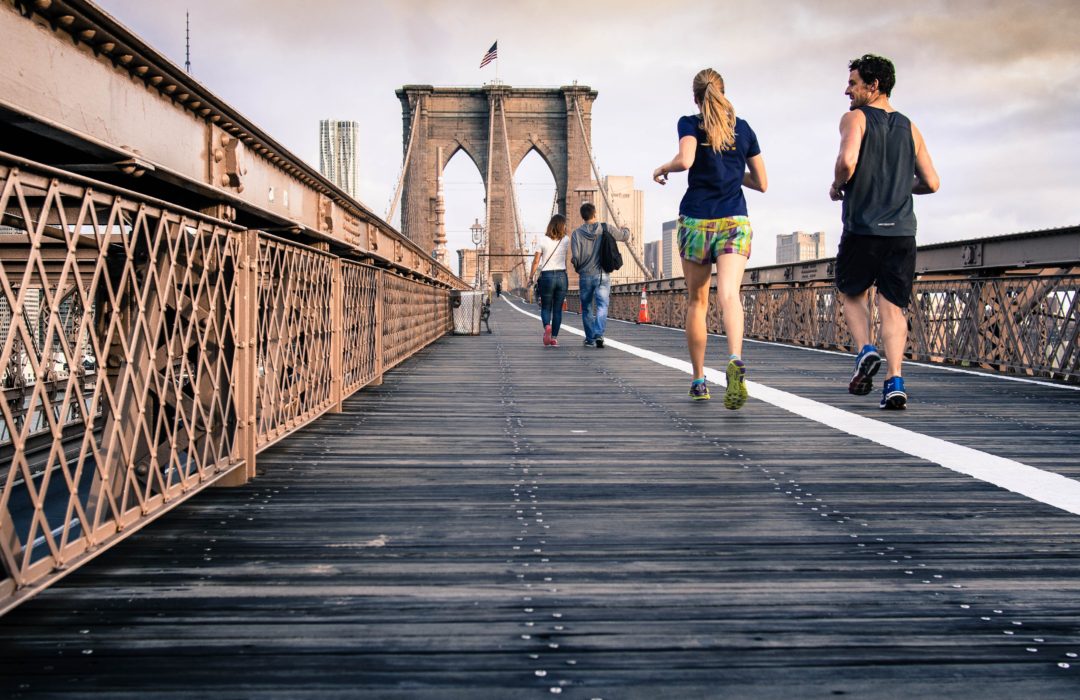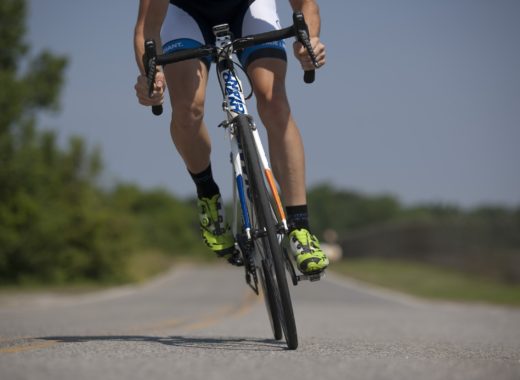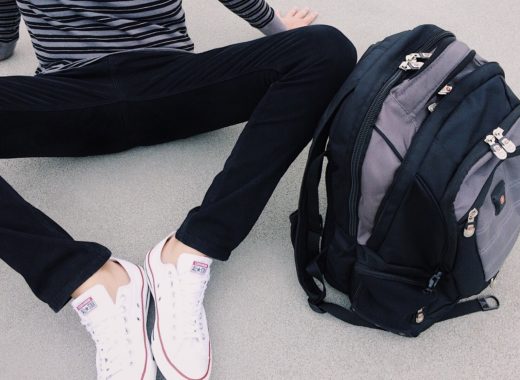Best Backpack for Running Commute
Best Backpack for Running Commute
Some of us love a good run commute. The difficult part about this activity is finding a backpack that perfectly meets our needs and allows us to carry clothes and a laptop. This is why we created the best backpack for running commute list.
We wanted to make it easy to find a running backpack for those of us that prefer not to wait in traffic or stand in line. We prefer the smell of nature and getting in a good exercise in the morning.
We skip the car or train ride and instead run to the office. We might not do it every day, but when we do its import for us to securely carry our business or personal items for the day.
These items can include a laptop, documents, lunch, water and a possible change of clothes. Searching for bag that perfectly serves this purpose isn’t always the easiest task.
Some of us are students and before class we like to run to school and we need room for our books, electronics and other school related items.
Whatever the reason may be that we runners commute, the one thing we all have in common is that our jog requires a comfortable backpack.
Jogging equals constant motion and a bag that can hold all of the items securely inside our pack is very important. We also want a bag that looks nice and won’t make us look foolish in a business meeting. Padded straps are a great feature to avoid irritated skin.
Now finding the best backpack for running commute with all these features isn’t always as easy as we would like it to be.
This is why we searched for the best running backpacks for a daily commute that made running with all of our belongings easy.
We found many great backpacks that are made for running. What we found difficult was finding the bags that can meet our standards. We hope you appreciate this shortcut and like the bags in our list for a great run.
10 Best Backpacks for Running Commute List
10 Best Backpacks for Running Commute List
Teton Sports Oasis Hydration Backpack (US $35)
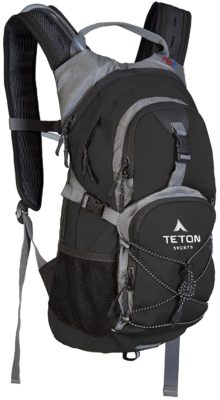
- Brand: Teton Sports
- Weight: 1.4 Pounds
- Pros: Great price, very popular purchase, hydration bladder included, foam stabilizer
- Cons: not water proof, Not as durable
Osprey Daylite Pack (From US $49)
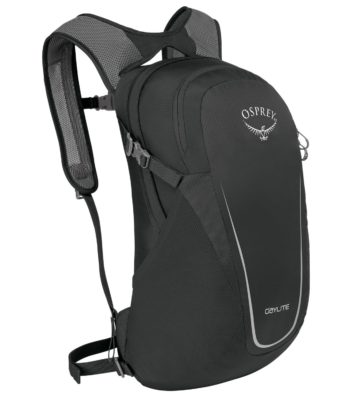
- Brand:Osprey
- Weight: 1 Pound
- Pros: Laptop ready – no padding, comfortable back panel, hydration pocket
- Cons: water bottle falls out if not secured, not water proof
The North Face Recon (From US 67$)
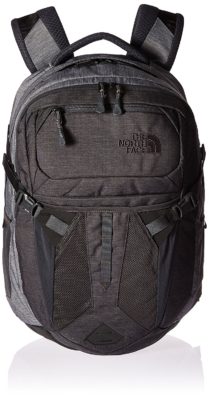
- Brand: North Face
- Weight: 3.2 Pounds
- Pros: Can be gender specific, laptop ready. comfortable
- Cons: Not water proof, could have more ventilation
Deuter Speed Lite 20 Athletic Daypack (US $75)
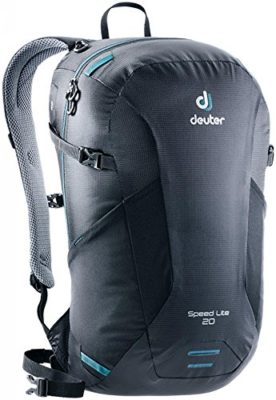
- Brand: Deuter
- Weight: 1.1 Pound
- Pros: Fits a laptop and clothing tightly.
- Cons: Shorter (5″5′) women should select the 10 Liter
Gregory Mountain Miwok (US $99)
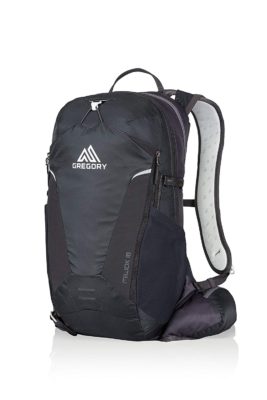
- Brand: Gregory Mountain
- Weight:
- Pros: Can fit a lot of items, Very comfortable
- Cons: No hydration system
CamelBak M.U.L.E. Hydration Pack (US $109)
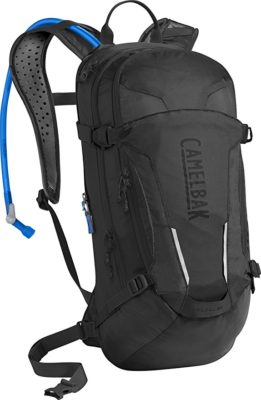
- Brand: CamelBak
- Weight: 1.37 Pounds
- Pros: Magnetic tube trap, back panel vents, water resistant, hydration pack
- Cons: Pockets are not easily reachable
Women’s Osprey Dyna 15 Hydration Pack (US $139)
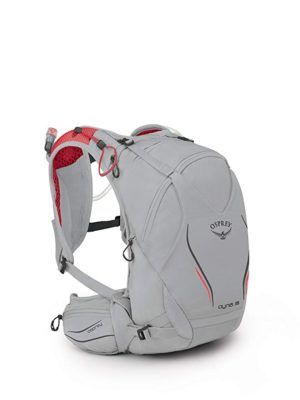
- Brand:Osprey
- Weight: 1.77 Pounds
- Pros: Dual mesh side pockets, zippered reservoir sleeve, great fit
- Cons: Women’s pack only
Osprey Packs Duro 15 (US $139)
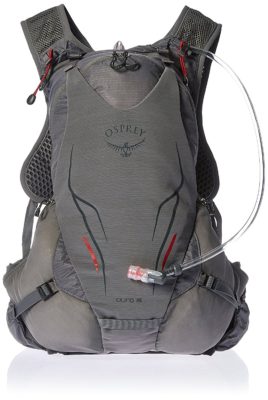
- Brand:Osprey
- Weight: 1.79 Pounds
- Pros: No chaffing, Excellent Construction, Hydration Pack
- Cons: For men only (women’s version available)
Montane Via Fang 5 (US $145)
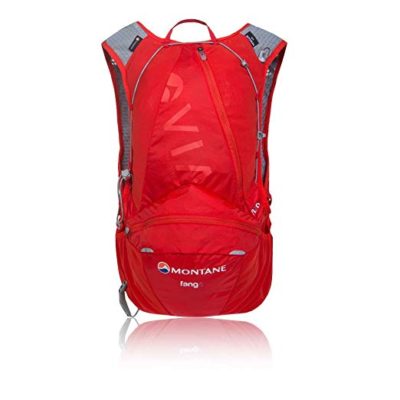
- Brand: Black Daimond
- Weight: 1.3 Pounds
- Pros: Smell-killin technology, excellent fit, stretchy lower strap
- Cons: Could be bigger
Montane Via Dragon 20 (US $169)
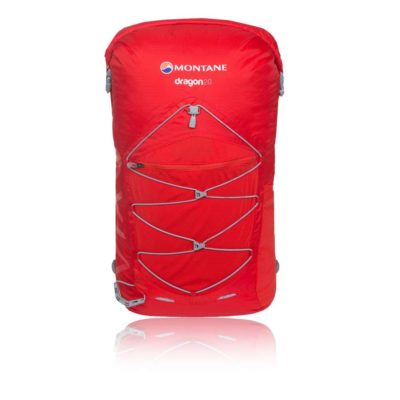
- Brand:Montane
- Weight: 1.3 Pounds
- Pros: Waterproof, Amazing Fit, Light,Hugs Back, Laptop ready
- Cons: Spacious – designed for extreme outdoors
Key Features to Look for In a Running Backpack
Why should you buy a running backpack?
This is actually a great question. If you’re not familiar with backpacks like we are then you’re probably not aware on how comfortable a running backpack can be compared to a traditional bag.
These bags are made for extreme stability and won’t move around as much. As opposed to a regular backpack that will bounce around causing back pain and irritation to the skin of the runner.
They are also designed for equal weight distribution assisting your body from not having to much pressure or weight on one side of the body. These bags distribute weight throughout the upper body from the glutes the back and around to the chest.
You add all this up and you have a very stable backpack perfect for running.
What size bag will you need?
The size of the bag may be one of the most important features for a run commuter since we are carrying a lot of items to our destination. A change of clothes and shoes could possibly take up the most room.
Bringing your laptop and some books may require a special sleeve that makes it possible for you to fit more things in the main compartment. If you prefer to bring a healthy snack for lunch in your bag, you will also need room for this.
When you add all these items together you might end up needing a\10-liter backpack at minimum to fit all of your daily items.
Will you need a hydration pack or a water bottle?
Depending on how long your commute is or if you plan on using your bag for other runs, you may need a bag with a hydration system. If you plan on running more than 9 miles at a time or if you’re hiking a trail without water fountains, a bag that can carry water is necessary to keep you hydrated.
Typically, a run commuter will need on average about a liter for a run. If you plan on running longer distances you should probably look for a bag with 2 liters of water.
You will have the option of purchasing a bag with a hydration bladder or you can purchase a water bottle that will suit your needs.
These are things you should think about before you get going. Also look at the temperatures before you hit the road to get a better idea of how much water you will need. Obviously the hotter the day the more water you may need.
Should your running backpack be water resistant?
I am sure you may have experienced moments on your commute when the rain seems to come out of nowhere.
Or the one day you decide to jog to work you forgot to look at the forecast, because you were worried about a project deadline.
Now you could just order an Uber or ask a friend for a ride, but it’s important to keep your options open and purchase an all-around good product that can adapt to different environments.
You especially do not want your clothes or electronics to get wet. This could cost you a small fortune if you carry expensive electronics. It could also ruin your day if you have dress code at school or work and the running tights won’t cut it.
To answer this question, you generally have two options. The first option is a full water proof backpack. You can’t go wrong with this option but finding one with all your needs is not as easy as you would think. You will also dish out some more cash compared to non-water proof bag.
The second option is a water-resistant cover. This is a more cost-effective product compared to a fully water proof bag.
If you do not want to spend the extra money on a water-resistant bag you can always purchase a rain jacket to cover the bag. It may not be as comfortable, but is an option.
Are padded straps important?
A good set of padded straps add a new level of comfort for the runner if they are made right. They are especially important for those of us that carry more weight in our packs.
Wider padded straps help the bag distribute the weight of the bag more evenly helping the runner maintain balance throughout the body and avoiding any pain or discomfort.
Although they may make the bag slightly heavier the runner will not feel it, because of the even distribution.
Compartments and Pockets
A backpack with the right compartments and pockets can make a world of difference in any bag. Essentially this is why we purchase a pack in the first place.
They give us the ability to securely store all of our items and electronics in their separate spaces helping us organize the way we want.
Compartments are especially important when it’s time for us to open the bag and look inside. A wider main compartment can help us easily find the items inside the bag that we may need in an instant.
A pack with more pockets gives us more options to pack more items. Front pockets, back pockets, side pockets, inner pockets and even strap pockets can help us meet the needs of the daily grind.
It’s important to have everything we need in a day’s time and pockets and compartments can really assist us in doing that.
How It Fits
How the bag will fit is probably the most important factor in purchasing a backpack. Even if the bag looks nice but it doesn’t fit well then there is no sense in purchasing it.
For this reason, you need to think about the build of your body. Everyone is shaped different and may require a different size. A female may prefer a design geared more toward women because of chest size. Where a male with broader shoulders may need the opposite.
Your best bet is either buying a gender specific bag or a backpack with adjustable straps. It’s not just the straps that go over your shoulders you also have the sternum and side compression straps. Reading specific reviews or contacting the manufacturer could assist in this purchase.
Does the backpack have ventilation?
If you’re not into having a sweaty back that may cause discomfort or irritation a mesh back for ventilation could be a good choice.
All running backpacks do not have this feature, but of you would rather have a dry back this is something that could be very helpful.
This feature is more common in hiking backpacks, but we are seeing a lot more running bags equipped with ventilation systems that reduce moisture.
Durability
Running bags are designed with strong materials built with weather resistant properties for snow and rain. Many of these bags also come equipped with mesh for the reduction of moisture.
You may be interested in bags that have reinforced areas that may be more susceptible to damage from the elements or from physical contact.
Budget
From what we found in our research, the price range for the best backpack for running commutes can vary. We found items as low as $24, which we would never recommend for long term quality concerns. We also found products in the mid hundred-dollar range that we showcase above.
You can get a decent bag under a $100 that will last you for some time. You can still get a very good quality bad under $100 dollars. If your open to spending a little more you can get some serious quality in a tanning backpack. Anything from hydration packs to detailed design.
Whatever your budget may be, we have found a number of bags in all price ranges that are sure to suit your needs. Just remember if you can spend a little more on a bag that will last you for many years to come then go for it. If not, you can still make a decent purchase at lower price.

